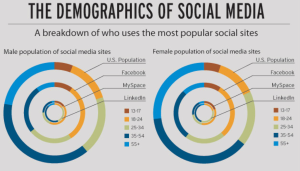 How come when I hear grandparents describe their grandchildren or parents post pictures of their kids on Facebook, the pride and descriptions are off the charts? For instance, a child’s first steps are frequently described or photographed as if it were ballet or a sports performance. When I read or listen to business plans, mission statements, or introductions to startup businesses, however, they frequently sound alike and do almost nothing to make the entrepreneur sound special. For example, what makes a business sound special when they use some of the following phrases: fair prices, well-constructed, trendy, top quality, and excellent customer service?
How come when I hear grandparents describe their grandchildren or parents post pictures of their kids on Facebook, the pride and descriptions are off the charts? For instance, a child’s first steps are frequently described or photographed as if it were ballet or a sports performance. When I read or listen to business plans, mission statements, or introductions to startup businesses, however, they frequently sound alike and do almost nothing to make the entrepreneur sound special. For example, what makes a business sound special when they use some of the following phrases: fair prices, well-constructed, trendy, top quality, and excellent customer service?
These are not much more than basic requirements to be in business. In contrast, below are two quotes that illustrate real pride: [Read more…]
Customer Service is Your Brand
Building a brand and differentiating yourself from competition are one of the key challenges facing startup businesses. Committing to quality customer service can be a key and achievable tool in the success of your business. While this may seem obvious, it frequently loses prioritization when other issues strain the business. For  example, the following is obvious:
example, the following is obvious:
• Satisfied customers, repeat customers, positive social media, and referrals are the best and least expensive marketing a business can have. There is no substitute for a satisfied customer.
• In contrast, dissatisfied customers, poor service, and negative referrals can offset the best marketing efforts.
• Avoiding problems with great products and service is the most productive strategy to execute great customer service.
• “You only have one chance to make a first impression.”
• Response time is becoming a key measure affecting sales, profitability, and excellence. It is wasteful to not promptly answer customer requests, have long lines, run out of inventory, etc. [Read more…]
Experience and Expertise are Critical to Startup Success
In his book, Outliers, Malcolm Gladwell became famous for arguing,
“10,000 hours of practice is required to become a world-class expert.”
I am not sure it is 10,000 hours, but my experience indicates that experience and expertise are probably the most important factors in successful startups. That doesn’t mean you need expertise in everything, but it does mean you need to have some hook into the effort you are pursuing. In fact, one of the related facts of this approach is you frequently acquire skills in areas where they are lacking. Two examples that illustrate this are as follows: [Read more…]
Goals and Measurement
 We all understand the importance of goals, purpose, direction and measurement in establishing commitment, success, team work, and coordination. Somehow between that understanding and the execution things often go awry.
We all understand the importance of goals, purpose, direction and measurement in establishing commitment, success, team work, and coordination. Somehow between that understanding and the execution things often go awry.
One of the key mantras of a relatively new industry, direct marketing, has been the focus on setting goals and measurement. Google Analytics, and products like it, have quickly become business tools of choice for companies seeking to set goals and measure results. These new direct marketing tools are so effective and relatively easy to use that businesses both large and small can now instantly measure and observe results.
One typical reason goals are often not set correctly is that it can be a difficult process. One of the advantages of professional sports is that the goal of winning is simple, clear, and easy. It is not always quite that simple in other businesses. [Read more…]
What’s a Real Entrepreneur?
In talking to entrepreneurs about starting a business there is a great deal of variety in energy, ideas, skills, experience, money, commitment,  and time required. If you have none of these, we suggest not wasting your time starting until you figure some of them out. If you have at least some of them, it is generally worth the effort to determine the potential and think about a program. Even with this advice, we frequently hear numerous frustrations with the process:
and time required. If you have none of these, we suggest not wasting your time starting until you figure some of them out. If you have at least some of them, it is generally worth the effort to determine the potential and think about a program. Even with this advice, we frequently hear numerous frustrations with the process:
“Doing a startup mostly s…ks. It’s hard in every way. You have to do all the sh…y work no one in a big company wants to do, especially you with your fancy degree and overblown ego. You work long hours. You make s..t for money. You worry about paying rent. But, above all, it’s hard emotionally. You’re a failure until you’re not.” [Read more…]
Demographics Do Not Lie
 Demographics is the study of how a population based on factors such as age, race, sex, economic status, education, income, and employment affect various outcomes. Demographics are typically used to learn more about a population’s characteristics. Businesses must rely on demographics as a key method for planning.
Demographics is the study of how a population based on factors such as age, race, sex, economic status, education, income, and employment affect various outcomes. Demographics are typically used to learn more about a population’s characteristics. Businesses must rely on demographics as a key method for planning.
Labor force
Back in 1960, the American labor force was dominated by 21-45 year old white males. Today, we have a far more diverse labor force when viewed according to age, sex, race, and ethnicity. These changes in the labor force require an entirely different structure of practices, strategies, and culture. [Read more…]